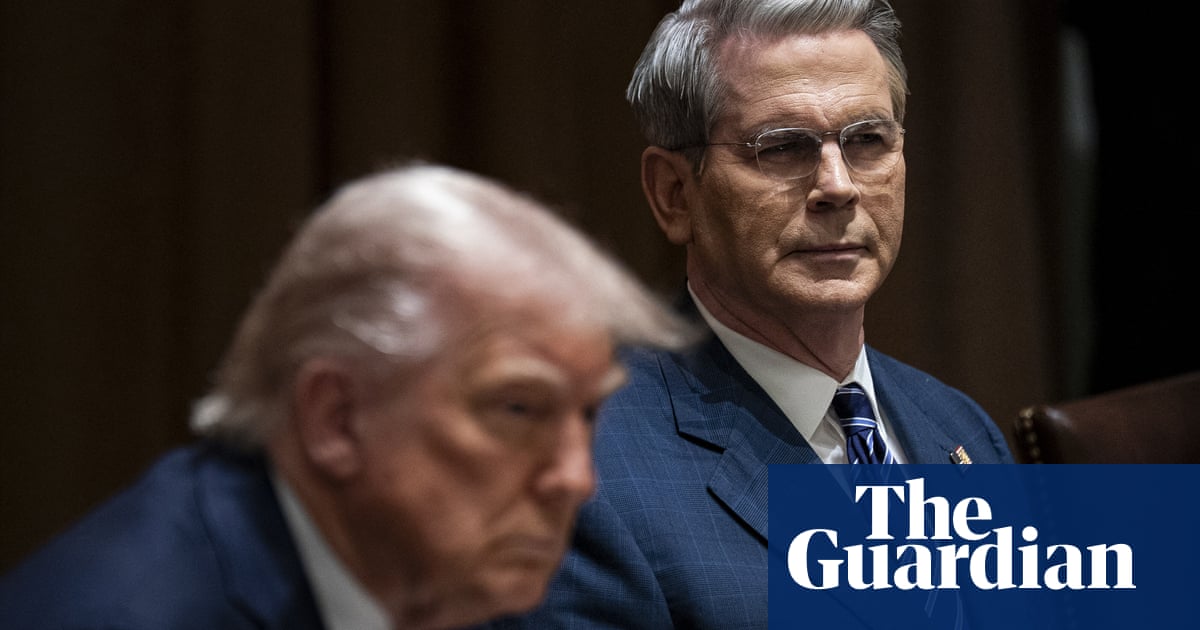The US treasury secretary, Scott Bessent, said “there is a path” to an agreement withChinaovertariffsafter he had interactions with his Chinese counterparts last week in Washington.
“I had interaction with my Chinese counterparts, but it was more on the traditional things like financial stability, global economic early warnings,” Bessent told ABC News’s This Week on Sunday, explaining that he spoke to the Chinese during International Monetary Fund meetings in Washington. “I don’t know if President Trump has spoken with President Xi,” he added.
On Friday,Donald Trumpasserted in an interview that tariff negotiations were under way with China, comments he repeated on his way to Rome to attend the funeral of Pope Francis, but were later denied by China’s foreign ministry, which said the US “should stop creating confusion”.
A day later, China’s foreign minister, Wang Yi, said Beijing abides by international rules on US-imposed tariffs and would seek solidarity with other countries.
“Certain countries adhere to their own priorities, engage in bullying pressure and coercive transactions, and provoke trade wars for no reason, exposing their extreme egoism,” Wang said on the sidelines of a regional meeting in Kazakhstan.
On Sunday, Bessent attempted to weave through the conflicting signals over what progress was being made to de-escalate a trade war threatening to sap global growth.
“The Chinese will see this high tariff level is unsustainable for their business,” he said. He added that Beijing’s denial that negotiations are ongoing was for a Chinese audience.
“I think they’re playing to a different audience,” Bessent said. “We have a process in place, and, again, I just believe these Chinese tariffs are unsustainable.
“The first path will be, again, a de-escalation, which I think the Chinese are going to have to have. Then I think there can be an agreement in principle, these 17 or 18 important trade deals that we’re negotiating.”
But Bessent warned that “a trade deal can take months” and said negotiations with other significant US trading partners were progressing. “Some of those are moving along very well, especially the – with the Asian countries,” he said, praising Trump’s negotiating strategy.
“In game theory it’s called strategic uncertainty,” he said. “So, you’re not going to tell the person on the other side of the negotiation where you’re going to end up. And nobody’s better at creating this leverage than President Trump.”
The treasury secretary’s comments come as top US retailers have reportedly warned the White House that tariffs will cause empty store shelves and price hikes within weeks.
Bloomberg reportedthat Chinese fast-fashion giantShein raised US pricesof its products from dresses to kitchenware on Friday ahead of imminent tariffs on small parcels. The average price for the top 100 products in the beauty and health category increased by 51%; more than 30% for home and kitchen products and toys; and a 377% increase in the price of a 10-piece set of kitchen towels.
Separately on Sunday, US agriculture secretary Brooke Rollins said the US was holding daily conversations with China over tariffs. “Every day we are in conversation with China, along with those other 99, 100 countries that have come to the table,” Rollins said on CNN’s State of the Union.
Rollins said the president was prepared to bail out American farmers if the trade war continues squeezing commodity exports, particularly soybean and pork sales to China.
“First of all, the prayer is that that doesn’t need to happen – but secondly, if it does, for the short term, just as in Trump 1, we are preparing for that,” Rollins said.
Rollins said it could take months before it is known if a bail-out is needed.
“I don’t think we’re going to need it, but if we do, it will be there,” Rollins said.
